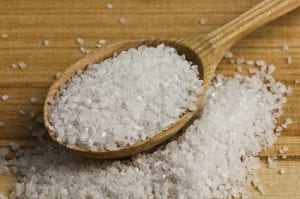 It’s that time of year when enthusiasm is high to take on new habits, and typically, exercise more. If this sounds like you, then take stock of the following bits of information to help you sweat-it-out in a healthier, safer way.
It’s that time of year when enthusiasm is high to take on new habits, and typically, exercise more. If this sounds like you, then take stock of the following bits of information to help you sweat-it-out in a healthier, safer way.
When we exercise for the suggested 150 minutes of moderate to vigorous intensity per week, we can’t help but sweat. And, in doing so, we can’t help but lose electrolytes: sodium, potassium, magnesium, and calcium. It may sound crazy, but adults have been shown to sweat up to 2-4 litres of fluid per hour in hot environments and at high intensity exercise levels. Keep in mind that other trace minerals can be lost through sweat as well, depending on their pre-existing concentration in the body; such elements may include zinc, copper, chromium, iron, nickel and lead, along with a multitude of other minerals in very low concentrations.
And, so what goes out must come in, just like calories. The single best source for trace minerals is sea salt, which has 84 trace minerals, which have been removed to render traditional table salt. Hence, a great way to offset electrolyte loss through heavy perspiration is by replacing table salt with sea salt or using sea salt for cooking. An even more novel idea is to add brine to your water.
Step 1: Fill a glass jar with ½ cup warm water
Step 2: Add 1 tbsp. salt crystals to water and stir until saturated (crystals disappear)
Step 3: Continue adding salt crystals until they cease to dissolve. You now have brine solution.
Each day you head for a workout, add a ½ -full teaspoon brine to each litre of water you consume while working-out. Note that brine solution should be kept at room temperature and periodically sat in sunlight for 10-15 minutes to revive elemental activity. A fresh stock of brine solution is encouraged on a weekly basis.
Having said all this, we should take stock of Public Health Agency of Canada’s daily adult recommendations for sodium, potassium, magnesium and calcium: 1,500mg sodium, 4,700mg potassium, 420mg magnesium and 1,000-2,500mg calcium. These are recommendations for the prevention of disease and for healthy active living individuals not addressing individuals living with high blood pressure or individuals exercising / sweating beyond the 150 minutes of moderate to vigorous exercise per week.



